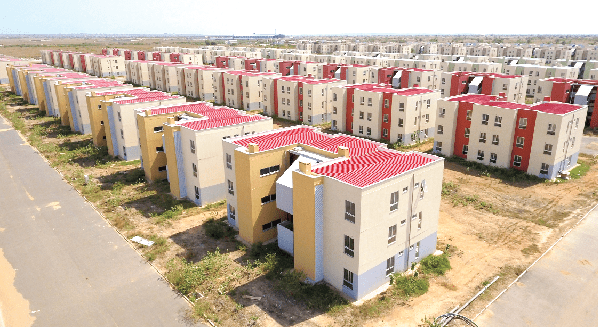Although Ghana’s housing deficit witnessed a 33 percent reduction from 2.8 million in 2010 to 1.8 million in 2022, partly attributable to the real estate boom and a 72 percent increase in residential structures within the period, a lack of affordable housing solutions still plagues the nation.
The Centre for Affordable Housing Finance in Africa (CAHF), which promotes investment in affordable housing and housing finance across the continent, has identified land tenure insecurity, high transaction costs, complex property rights and weak regulatory oversight stemming from institutional neglect as major challenges hindering the development of affordable housing.
In its ‘Housing Finance in Africa Yearbook 2023’, CAHF indicated that housing finance solutions – particularly for urban dwellers in Ghana – will remain a challenge if government remains inflexible in its approach.
CAHF asserts that the unaffordability of housing finance is further exacerbated by weakened consumer sentiment, driven by persistent increases in fuel prices, rising transportation fares and escalating inflation – factors which have all contributed to a surge in housing prices across the country.
However, the Ministry of Works and Housing has recently announced, yet again, another comprehensive plan to tackle the country’s housing deficit. With a housing shortage of 1.8 million units affecting approximately 5.4 million Ghanaians, government said it has identified seven key priorities for increasing housing supply and improving access to affordable housing.
These priorities include completing stalled projects – including the Saglemi, Koforidua and Adenta State Housing schemes. The Adenta project began in 2011 but was suspended in 2013, due to a court injunction.
However, court rulings have allowed work to resume and efforts are now underway to secure private developers who will fund and complete these projects, among others.
With an existing national bond market – the Fixed Income Market (GFIM) where government and other quasi-public and corporate money market instruments are listed and traded – various other organisations have also made concerted efforts to increase the national housing stock and contribute to the affordable housing agenda.
If noted challenges in the built environment are tackled adequately, we cannot see why such schemes to provide Ghanaians with affordable housing should face problems. Shelter is a basic requirement for mankind.










